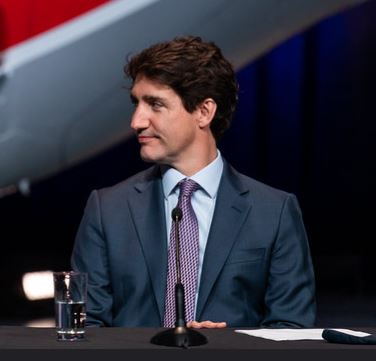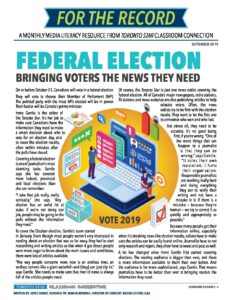Notice: Undefined index: file in /home1/teachkn7/public_html/wp-includes/media.php on line 1745
There will be a Canadian federal election on September 20.
It will be Canada’s 44th federal election. (In this case “federal” means “affecting the whole country.”) Canadian Prime Minister Justin Trudeau made the announcement on August 15.
In a federal election, Canadian adults across the country vote for the people they want to lead (Members of Parliament, or MPs) in their area or “riding.” The political party with the most MPs forms the government and that party’s leader becomes the prime minister. The party with the second-most MPs becomes the Official Opposition.
Some people are criticizing Trudeau’s decision to call an election just two years after forming the government, and during a pandemic. Elections are costly and time-consuming, and some people say the government’s time and resources should be focussed on the COVID-19 pandemic.
Trudeau’s Liberal party currently forms a minority government. The prime minister is hoping that the party is so popular right now, especially for its handling of the pandemic, they could win a majority.
Having a majority government is when a political party has more “seats” or MPs in the House of Commons than all the other political parties combined. This is important, because when a government wants to make a new law, the MPs vote on it. If a government has more MPs than all of the other parties combined, they will win the vote (unless something very unusual happens). So, a majority government can make big changes, knowing that their ideas won’t be overruled.
Canadians will have just over a month to decide who they want to vote for.
THINK & DISCUSS
How long before an election is the announcement made? It varies a lot from country to country. In France, for instance, voters typically get about two weeks’ notice. In the United States, it’s about two years. Pick four countries and find out how long their election campaigns typically run. How do you think timing affects the outcome (result) of an election?
There are five main political parties in Canada. (A) What are they and who are their leaders? (B) if you do not live in Canada, who are the leaders where you live? (C) Name some of the other political parties in Canada.
There are more than 600 First Nations in Canada. Read about the Assembly of First Nations (AFN), which governs First Nations, and Indigenous leaders here and here. Why do you think it’s important to know about how First Nations are governed?
Who do you think will win Canada’s 44th federal election? Why?
Each political party has a leader who becomes the public face of the party. Compare the leaders of the Liberals, Conservatives, NDP, Bloc Québécois and Green parties. How are they different? How are they similar?
What is a political party? Why do you think Canada and other countries use this system?
There’s some math involved in calculating a majority or a minority. What numbers or information would you need in order to figure this out?
LINKS
Read about how federal elections are covered by media in this edition of “For the Record,” a resource written by TKN’s Joyce Grant and produced free for students and educators by The Star’s Classroom Connection.
How do various countries handle elections? https://www.pewresearch.org/fact-tank/2020/10/30/from-voter-registration-to-mail-in-ballots-how-do-countries-around-the-world-run-their-elections/
The Elections Canada website has lots of information about how the country runs federal elections: https://www.elections.ca/content.aspx?section=res&dir=ces&document=part5&lang=e









